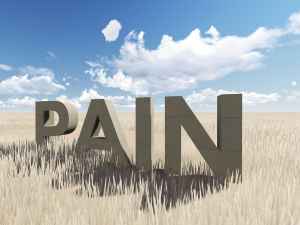 When you’re in pain, all you want is to feel better. Sometimes, it’s difficult to know how to address pain effectively, especially if over-the-counter medications fail to provide relief. One way to incorporate better pain management strategies is to understand the science of pain. Physical Therapist at Stoughton Health, Amy Brown, offers her expertise.
When you’re in pain, all you want is to feel better. Sometimes, it’s difficult to know how to address pain effectively, especially if over-the-counter medications fail to provide relief. One way to incorporate better pain management strategies is to understand the science of pain. Physical Therapist at Stoughton Health, Amy Brown, offers her expertise.
“Everybody has pain. Pain is normal, and it’s necessary. If we didn’t have pain, we would die. For instance, if you put your hand in a fire and you didn’t feel pain, you wouldn’t have a response to tell you to pull away from it,” explains Brown. “So, it’s important we learn to understand pain so it’s not so scary for us. If we don’t understand pain, it can start to consume our entire life and alter our physical and emotional responses.”
A Paradigm Shift in Pain Science
In previous pain science models, experts believed there was a pain nerve connected directly to the brain. In the last 20-plus years, it’s been discovered that instead of pain nerves there are specific fibers that send messages to the brain. The brain then interprets those messages as a pain response.
“We’re doing quality studies now to understand that response and how we can affect our pain response,” states Brown.
This is important because some people heal completely from injury, or whatever the cause was for their pain, while others may technically “heal” but still deal with frequent pain. Brown notes that any scenario depends on one’s personal experiences with pain.
“If we have multiple negative events in our life, that can affect our recovery, affect how well we heal, and affect how we feel about it. But, other factors can also influence our recovery.” Such factors may include fear, depression, anxiety, unhealthy nutritional habits, poor sleep hygiene, reduced activity, and the use of medications or alcohol.
“If you have punitive or overprotective family members, they can influence how you heal as well,” adds Brown. “Working night shifts also make it harder to heal. If you don’t like your job very well, you don’t heal as well. Or, if you don’t like your boss or your coworkers, that makes it harder to heal too.”
Pain Knowledge Is Power
When it comes to pain, the old adage of “knowledge is power” truly applies. Scientific studies have proven that pain education, when combined with other therapies, can make a significant difference in reducing pain and improving function.
Brown provides the example of approaching exercise in one’s post-pain experience. It’s important to take things slow and steady, because starting too aggressively often leads to pain rebounds. “That is actually teaching your brain that the exercise and movement is ‘bad’ and will make your pain worse. Instead, we have to start progressing just to the point where we are getting close to our pain threshold, but not too aggressive. Then, slowly increasing that level so we don’t get that rebound effect.”
She also shares that good sleep hygiene is crucial for relieving pain long-term, as sleep allows the body to heal. And, it’s helpful to set realistic pain relief goals that leave room for modification if needed.
If you’d like to explore pain education further, Stoughton will be hosting a free one hour Zoom presentation called “The Science of Pain” on October 26 from 5:30 to 6:30 p.m. CST. “If that’s something you’d be interested in learning more about, you can go on www.stoughtonhealth.com and then click on classes and events,” notes Brown. “Otherwise you can also call our number at 608-877-3498 for more information.”

